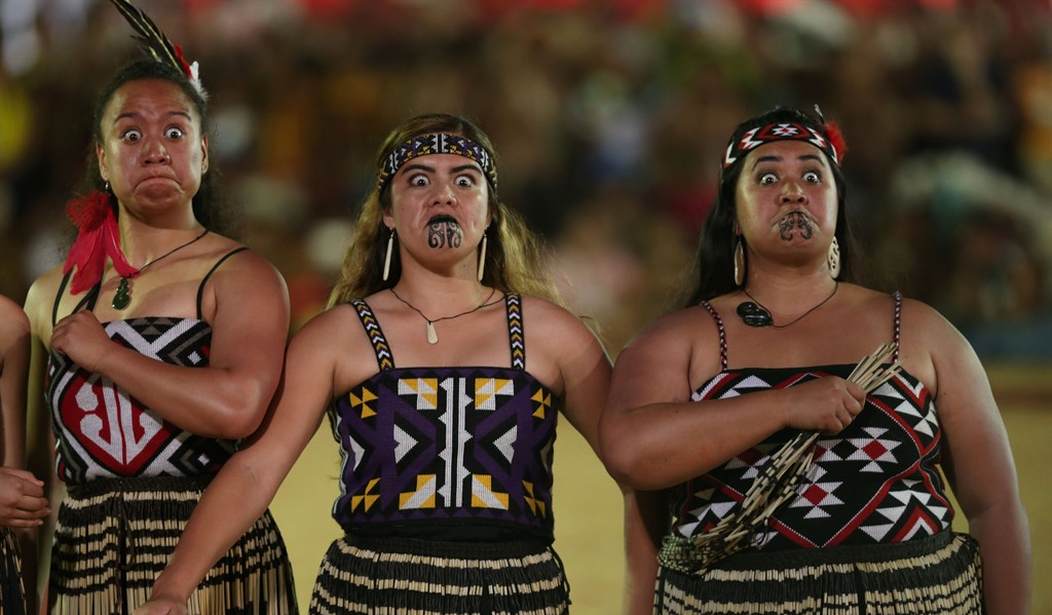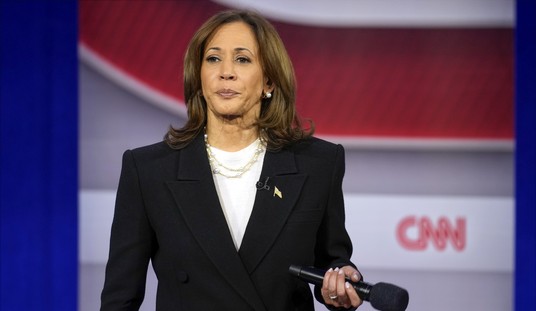Indigenous lawmakers broke into a tribal dance to protest a bill in New Zealand's parliament.
To reject a piece of legislation proposed by the island country's libertarian party, a bunch of Māori members of Parliament (MPs) staged a protest by busting out the "haka," a Māori war dance traditionally used to terrify enemies on the battlefield.
Māori members of New Zealand’s parliament disrupted the passage of a bill that would reinterpret the 1840 Treaty of Waitangi, which uplifts Indigenous peoples. The MPs performed a haka—a traditional Māori dance and chant—causing the session to be suspended. pic.twitter.com/89VhB1aqAS
— red. (@redstreamnet) November 14, 2024
The disruption came during a critical vote on the parliamentary floor Thursday.
It began when opposition party MP Hana-Rawhiti Maipi-Clarke was called on to vote yea or nay on the Treaty Principles Bill, which would change the interpretation of Britain's 184-year-old treaty with New Zealand's Māori tribes.
Instead, she ripped up the legislation and bellowed the opening cry of the haka, prompting other Māori MPs to join in, dance about the parliamentary chamber, and chant in the faces of their political opponents.
The floor-shaking performance involved the legislators bulging their eyes ("pukana"), sticking out their tongues ("whetero"), and stomping their feet ("Waewae takahia") in unison.
As they roared, the bug-eyed mob of Māori MPs approached where ACT Party leader David Seymour, the author of the bill, was seated.
House Speaker Gerry Brownlee, appearing irate, struggled to quash the fracas.
"No, don't do that," an annoyed Brownlee told Maipi-Clarke when she started shouting.
Seymour had to temporarily suspend the parliamentary session due to the outburst, and officials cut the live broadcast of the proceedings.
Recommended
Before the vote resumed, Brownlee then ordered the gallery's removal; suspended 22-year-old Maipi-Clarke, the youngest member of Parliament, for the rest of the day; and ejected Māori lawmaker Willie Jackson, who shouted, "Shame! Shame! Shame on you, David Seymour! Shame on you for what you're trying to do to this nation!"
Brownlee threw out Jackson, formerly the Minister for Māori Development, specifically for calling Seymour "a liar," an accusation that's considered unparliamentary language. Jackson was asked to withdraw his statement and apologize, but he refused. He also accused Seymour of carrying out a "hate tour."
Just imagine the outrage and uproar if anyone was doing only half of what David Seymour is being accused of!
— The Redbaiter (@TheRedbaiter) November 15, 2024
After numerous warnings, the speaker finally ejected Labour MP Willie Jackson from the house for calling Mr Seymour a liar.
During the debate on the Treaty Principles… pic.twitter.com/Y67UBXOo5s
In 1840, representatives of the United Kingdom and hundreds of Māori chiefs signed the Treaty of Waitangi, paving the way for Britain's declaration of sovereignty and the Crown colony's establishment.
Under the 1840 Treaty of Waitangi, the Māori tribes were promised broad rights to retain their lands and safeguard their interests in return for ceding governance to the British.
If enacted, Seymour's bill would redefine the founding document to specify that those rights should apply to all New Zealanders.
"What all of these principles have in common is that they afford Māori different rights from other New Zealanders," said Seymour, who is Māori, during the debate Thursday. He says that the decades-long dispute over the treaty has sown racial division.
Seymour, who's also New Zealand's associate justice minister, argues that since the treaty's principles were never legally defined, the courts have taken creative liberty to "justify actions that are contrary to the principle of equal rights," such as unequal access to taxpayer-funded services and ethnic quotas in public institutions that run counter to the spirit of fairness for all New Zealanders regardless of ancestry.
Although the treaty itself is not enshrined in law, clauses in the document guide policy today, and aspects of it have been adopted over time into the legislation. Court rulings have since greatly expanded Māori privileges, and Seymour says this priority treatment discriminates against non-indigenous citizens.
The ACT Party is seeking a "democratization" of the treaty that would incorporate the voices of all New Zealanders through a democratic parliamentary process rather than via the Waitangi Tribunal, which has interpreted the treaty and prescribed policy without the electorate as a whole being democratically consulted.
Anti-"colonial oppression" activists, who believe that the Māori have been historically disenfranchised despite what they were promised, have worked to instill the "Māori way of life" in New Zealand. These efforts include obtaining billion-dollar land settlements as reparations, the teaching of the Māori language in New Zealand schools, and guaranteed positions in government.
"You are complicit in the harm and the division that this presents," Rawiri Waititi, a Te Pāti Māori co-leader, told those who helped advance the bill. He accused Seymour of running the country "like the KKK."
Seymour's ACT Party, a libertarian group, is allied with the National and New Zealand First parties in a center-right coalition. Though the unpopular bill is unlikely to become law, it passed a first vote Thursday, thanks to the backing of Prime Minister Christopher Luxon's National Party. Luxon himself opposes it, but his party voted in favor of the bill because of a political deal struck with Seymour that ultimately landed Luxon the PM post. In the last election, Luxon earned the ACT Party's support to help him win enough seats — in exchange for political concessions.
So, as part of the coalition agreement, Luxon told Seymour that the National Party's members would vote for the bill once while publicly promising that the proposal would not move further than the first reading.
A number of legislators delivered Parliament speeches saying they opposed the bill before voting for it, much to the chagrin of the Māori-allied MPs who demanded that they break rank.
"If you vote for this bill, this is who you are and this is how you will be remembered," Green Party co-leader Chloe Swarbrick told Luxon's allies.
The bill passed after the votes were cast as planned and no one deviated. Now, the bill heads to a select committee for a six-month public submission process before it undergoes another vote.
Thousands of protestors are slated to converge on the capital, the city of Wellington, next week for a massive march against the bill.
Proud to have joined the hīkoi today ❤️🤍🖤✊🏽 #ToitūTeTiriti pic.twitter.com/9q8d1FgBFs
— VL (@gucciucchi) November 13, 2024

























Join the conversation as a VIP Member